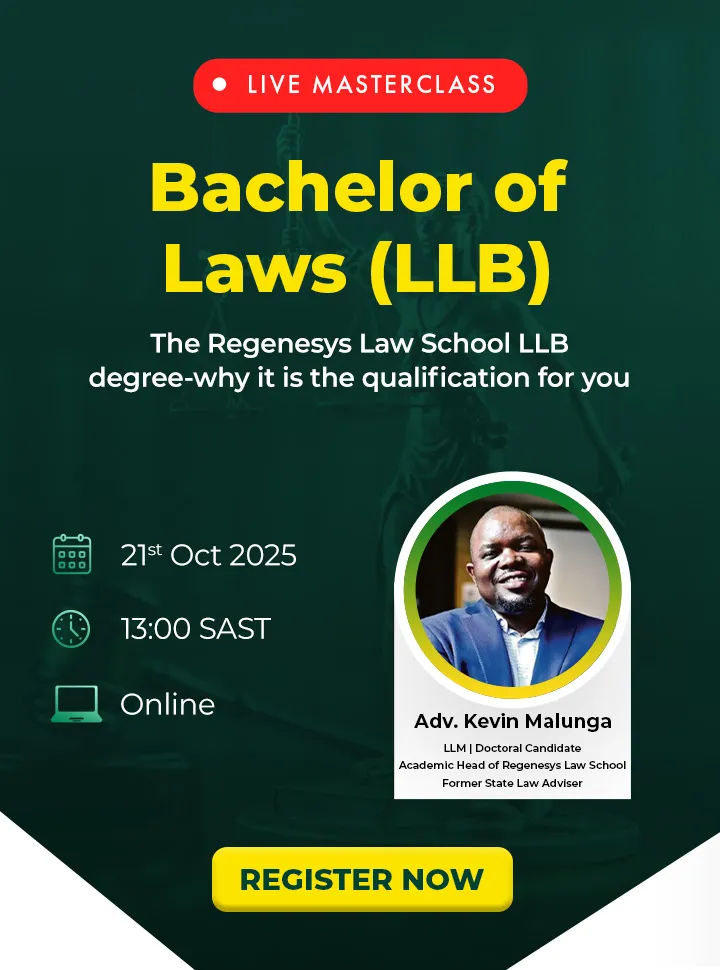Pursuing higher education can be financially challenging, but scholarships and bursaries offer significant support to learners. These forms of aid allow candidates to focus on their studies and reach their potential without being burdened by financial worries. Candidates have many options to choose from in financial aid. However, bursaries and scholarships stand out amongst all the other sources due to their non-repayable advantage. Oftentimes, bursaries and scholarships are terms used interchangeably, they represent different forms of financial aid with very specific eligibility criteria set by the lenders and awarders. Hence, understanding the differences between both are important for candidates to make an informed decision and access the necessary resources to achieve their career and educational ambitions.
In the article, we will discuss the notable difference between scholarships and bursaries and examine their roles in supporting learners financially.
Table Of Contents
- Bursary V/S Scholarship
- What Is The Key Difference Between A Scholarship And A Bursary?
- Can I Apply For Both A Scholarship And A Bursary Simultaneously?
- Conclusion
- Frequently Asked Questions (FAQs)
Bursary V/S Scholarship
Bursaries are non-repayable financial awards provided by universities, corporations, organisations, foundations, or the government to those who are in need of monetary assistance to pursue higher education. These entities provide bursaries to candidates who require the most assistance, such as those from very low-income households, specific demographics, or challenging personal situations. Learners who are unable to pay any sum, even with parental support, are generally awarded bursaries.
Scholarships are financial assistance provided to learners who have showcased academic excellence in their educational pursuits. They are also a type of non-repayable aid offered by universities or government entities. Scholarships are of several types and can contain measures like reduced tuition fees, funding housing expenses, textbooks, transportation, or any other related costs. They depend mainly on a learner’s academic performance rather than their financial background.
Let’s understand in detail the major points of bursary v/s scholarship in the next header.
What Are The Key Differences Between A Scholarship And A Bursary?
Both bursaries and scholarships are non-repayable awards given to learners to cover their academic costs. The key difference between scholarships and bursaries lies in the reason an individual is awarded any of them. Let’s delve into the main points of difference to consider between both.
-
Types
Bursaries: Bursaries are awarded with consideration to many aspects. The types of bursaries include needs-based bursaries (requiring proof of income), emergency bursaries (for unexpected financial issues), access bursaries (for disadvantaged candidates), and institutional bursaries (offered by schools). They require proof of financial hardship and cover costs like tuition and living expenses, ensuring candidates can access education despite financial obstacles.
Scholarships: Scholarships are merit-based financial awards given for academic excellence, specific talents, or demographic criteria. Types include merit-based scholarships (for high academic achievement), subject-specific scholarships (for certain fields of study), talent-based scholarships (for abilities in areas like sports or arts), demographic scholarships (for specific groups like women or minorities), community service scholarships (for volunteer work), and institutional scholarships (offered by schools). They often require academic records, talent proof, or essays to reward high-performing learners.
-
Benefits
Bursaries: The primary benefit of a bursary is its focus on lifting the financial burden on already economically backward families. By supplying financial contributions to learners in need, bursaries allow them to pursue their studies without facing monetary hardships. This support can significantly impact candidates’ lives, enabling them to focus on their academic goals and achieve their full potential. This can also encourage them to move up the economic disabilities and improve their sustainability with good, paying jobs after education. It helps candidates who are socially disadvantaged and have opportunities to access higher education and realise their career aspirations without worrying about the cost.
Scholarships: Scholarships offer various benefits beyond financial assistance. They serve as a form of recognition and encouragement for candidates who demonstrate talent, abilities, and achievements. Receiving a scholarship can boost a student’s confidence, motivation, and sense of accomplishment. Additionally, scholarships often showcase prestige and honour, sweetening the recipient’s academic or professional reputation. Scholarships can also provide networking opportunities, mentorship and other forms of support that can further enhance the recipient’s educational experience and career prospects.
-
Who Can Apply
Bursaries: Bursaries are typically awarded to learners who face monetary challenges that may hamper their ability to pursue higher education. This includes candidates from low-income families, first-generation college candidates, candidates with disabilities, or candidates experiencing other socio-economic hardships. Bursaries support candidates who have genuine financial need, regardless of their academic performance or extracurricular achievements.
Scholarships: Scholarships are typically presented to candidates who have demonstrated exceptional achievements or potential for excellence in certain areas of academia. This may include good grades, artistic talent, leadership skills, athletic capabilities or community service. Scholarships are highly competitive, and applicants are required to meet rigorous academic or performance-related standards to be considered for selection. Recipients of scholarship learners who have set themselves apart from the other candidates through hard work and exceptional contributions in their respective fields.
-
Offered By
Bursaries: Bursaries are offered by various entities, including educational institutions, government agencies, non-profit organisations, charitable foundations, corporations, community groups and individual donors. These entities recognise the importance of providing financial support to candidates in need and may establish bursary programmes as their way of responsible community service. Bursaries may be funded through donations, endowments or grants with the aim of supporting candidates who require financial help for education.
Scholarships: Scholarships can be offered by numerous organisations and entities interested in promoting education, talent development, or specific fields of study. These organisations include universities, colleges, professional associations, corporate sponsors, foundations, alumni networks, philanthropists, and other benefactors. Scholarship providers establish criteria and eligibility standards based on their set objectives, such as academic achievements, field of study, demographic characteristics, or extracurricular involvement. Scholarships may be funded through endowments, sponsorships, fundraising events, or other means with the goal of recognising and supporting outstanding candidates who showcase merit in their talents.
-
Repayment
Bursaries: Bursaries are typically awarded as non-repayment grants or gifts, meaning that recipients are not required to repay the amount they receive. Bursary recipients are expected to use the funds responsibly to cover educational expenses and related costs, but they are not held accountable for repaying the assistance provided through the bursary programme. Individuals who are awarded bursaries should always check the terms and conditions associated with them, as sometimes the bursaries do not cover certain aspects like accommodation or transportation. Also, they can be part-time bursaries which support the learners for a limited span of time rather than throughout the entire academic process.
Scholarships: Similarly, scholarships are generally awarded as non-refundable financial benefits, and recipients are not expected to repay the funds received. However, some scholarships impose certain conditions or requirements that recipients must fulfil to maintain eligibility or retain them. These conditions may include maintaining a minimum grade point (GPA), making satisfactory academic progress, completing a specified number of credit hours or courses, participating in extracurricular activities or fulfilling service obligations. Failure to meet these requirements may result in the scholarship being revoked or converted into a loan, requiring repayment of the disbursed funds.
-
Documentation
Bursaries: Applicants for bursaries may be required to provide documentation of their financial circumstances to prove their eligibility for assistance. The documents generally include information such as income statements, tax returns, bank statements, proof of household expenses, and other relevant financial records. The purpose of this documentation process is to determine the applicant’s financial need accurately and fairly, ensuring that bursaries are being awarded to families who genuinely require monetary assistance to pursue their education.
Scholarships: Applicants for scholarships may need to submit documentation depending on the requirements set by the provider. This documentation may include academic transcripts, letters of recommendation, resumes or CVs, and certificates detailing their achievements in academics and extracurricular activities. They may also be required to submit portfolios showcasing their talents or previous work, personal statements, and essays explaining their goals and aspirations and reasons for applying. The provided documents support the providers in selecting and evaluating the applicants, ensuring a fair and transparent selection process.
Can I Apply For Both A Scholarship And A Bursary Simultaneously?
Yes, it is perfectly fine to apply for both bursaries and scholarships altogether. Surveying all financial support options for your education is a wise choice. However, make sure to carefully review the eligibility criteria for each scholarship and bursary before applying. Thoroughly go through the requirements and pay attention to the application deadlines. Allocate a good amount of time to prepare and proofread your applications to make sure they are flawless before submission.

Conclusion
When evaluating bursaries and scholarships, financial need is the primary consideration, and preference is given to candidates facing the most financial difficulties. Therefore, it is crucial to apply for a bursary only if an individual’s income aligns with the given eligibility prerequisites. If an individual’s financial requirements do not meet the specified criteria, focusing on efforts for scholarship applications is more advantageous. Scholarships often prioritise academic performance and other achievements, making them a better choice for learners with strong academic records.
For guidance on quotation for bursary application, contact Regenesys career counselling department to help you achieve your educational ambitions.
Frequently Asked Questions (FAQs) – Distinction Between Scholarships And Bursaries
Q1. Do bursaries and scholarships cover all academic finances?
Both bursaries and scholarships generally cover all the finances related to the academic year. However, some organisations only cover one year, and learners need to reapply for the next academic year. Some bursaries and scholarships only cover a specific set of requirements, like tuition fees and accommodation, but leave out transportation expenses. Hence, it is advantageous to check the terms and conditions beforehand.
Q2. How can one apply for a bursary?
To apply for a bursary, an individual must research eligible options relevant to their financial income. The next step is to gather the necessary documents and fill out the application form accurately. Some awarding entities require candidates to submit a personal statement or motivation letter. After submission of all materials before the deadline, then follow up as needed.
Q3. What is expected after an individual is rewarded with a bursary?
After receiving a bursary, the candidate will be thoroughly informed of the guidelines for maintaining eligibility, such as attending certain courses, continuing to score a good GPA, or fulfilling other obligations. Details will be provided as and when the funds will be disbursed. It is important to understand and follow all the rules in the agreement.
Q4. Where can you look for scholarships or bursaries?
You can find information about scholarships and bursaries through online databases, contacting financial aid offices at universities, and checking with professional associations, community organisations, employers, and government programmes. In certain cases, social media can also be helpful for updated information.
Q5. Are bursaries and scholarships available for all levels of education?
Yes, bursaries and scholarships are available for various levels of education, including high school, undergraduate, postgraduate, and other programmes.








